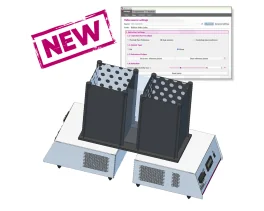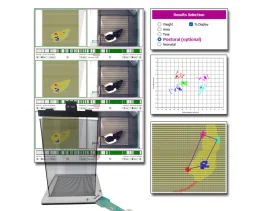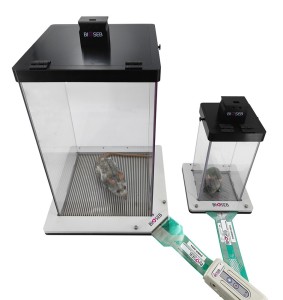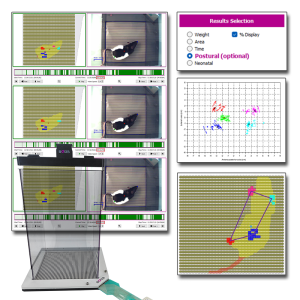Authors
T Miladinovic, RG Ungard, K Linher-Melville, S Popovic, S Popovic, G Singh
Lab
McMaster University, Hamilton, Ontario, Canada
Journal
Molecular Pain
Abstract
Breast cancer cells release the signalling molecule glutamate via the system xC_ antiporter, which is upregulated to exchange extracellular cystine for intracellular glutamate to protect against oxidative stress. Here, we demonstrate that this antiporter is functionally influenced by the actions of the neurotrophin nerve growth factor on its cognate receptor tyrosine kinase, TrkA, and that inhibiting this complex may reduce cancer-induced bone pain via its downstream actions on xCT, the functional subunit of system xC_. We have characterized the effects of the selective TrkA inhibitor AG879 on system xC_ activity in murine 4T1 and human MDA-MB-231 mammary carcinoma cells, as well as its effects on nociception in our validated immunocompetent mouse model of cancer-induced bone pain, in which BALB/c mice are intrafemorally inoculated with 4T1 murine carcinoma cells. AG879 decreased functional system xC_ activity, as measured by cystine uptake and glutamate release, and inhibited nociceptive and physiologically relevant responses in tumour-bearing animals. Cumulatively, these data suggest that the activation of TrkA by nerve growth factor may have functional implications on system xC_-mediated cancer pain. System xC_-mediated TrkA activation therefore presents a promising target for therapeutic intervention in cancer pain treatment.
BIOSEB Instruments Used
Dynamic Weight Bearing 2.0 (BIO-DWB-DUAL)
Keywords/Topics
Douleurs chroniques; Cancer; Douleur; Thématiques transversales
Source :
http://journals.sagepub.com/doi/full/10.1177/1744806918776467

 Douleur - Allodynie/Hyperalgésie Thermique
Douleur - Allodynie/Hyperalgésie Thermique Douleur - Spontanée - Déficit de Posture
Douleur - Spontanée - Déficit de Posture Douleur - Allodynie/Hyperalgésie Mécanique
Douleur - Allodynie/Hyperalgésie Mécanique Apprentissage/Mémoire - Attention - Addiction
Apprentissage/Mémoire - Attention - Addiction Physiologie & Recherche Respiratoire
Physiologie & Recherche Respiratoire




































 Douleur
Douleur Système Nerveux Central (SNC)
Système Nerveux Central (SNC)  Neurodégénérescence
Neurodégénérescence Système sensoriel
Système sensoriel Système moteur
Système moteur Troubles de l'humeur
Troubles de l'humeur Autres pathologies
Autres pathologies Système musculaire
Système musculaire Articulations
Articulations Métabolisme
Métabolisme Thématiques transversales
Thématiques transversales Congrès & Meetings 2026
Congrès & Meetings 2026 
